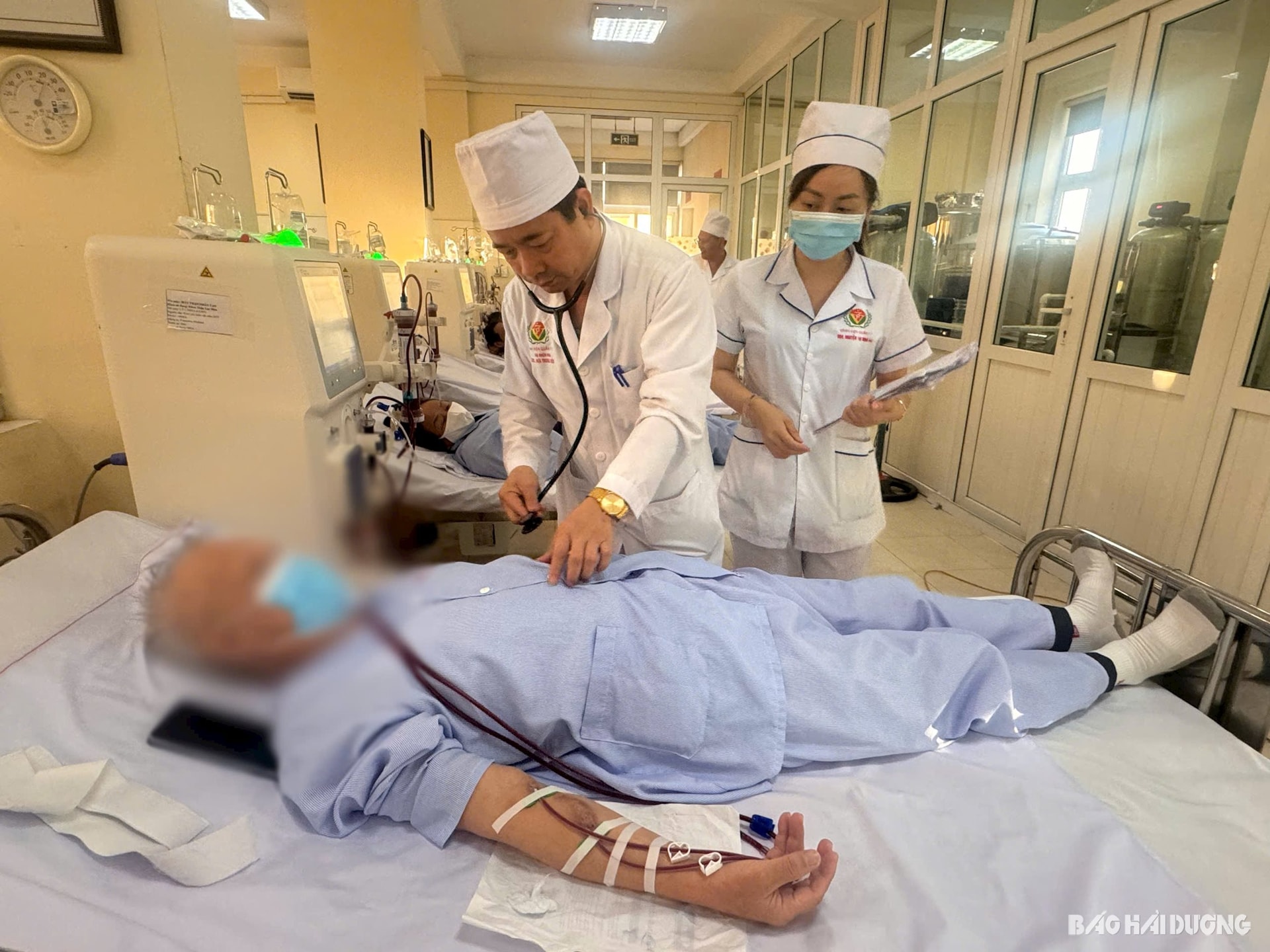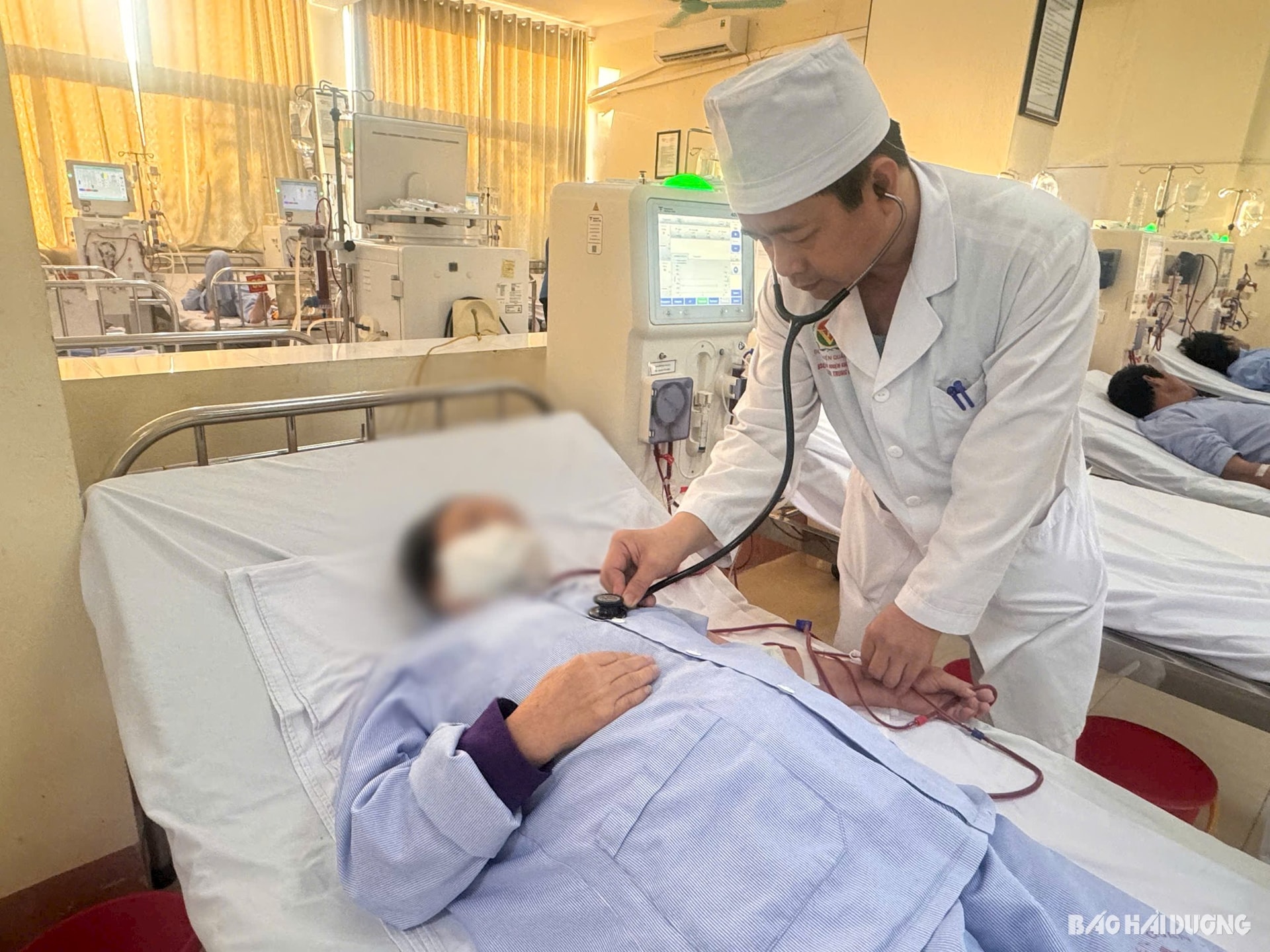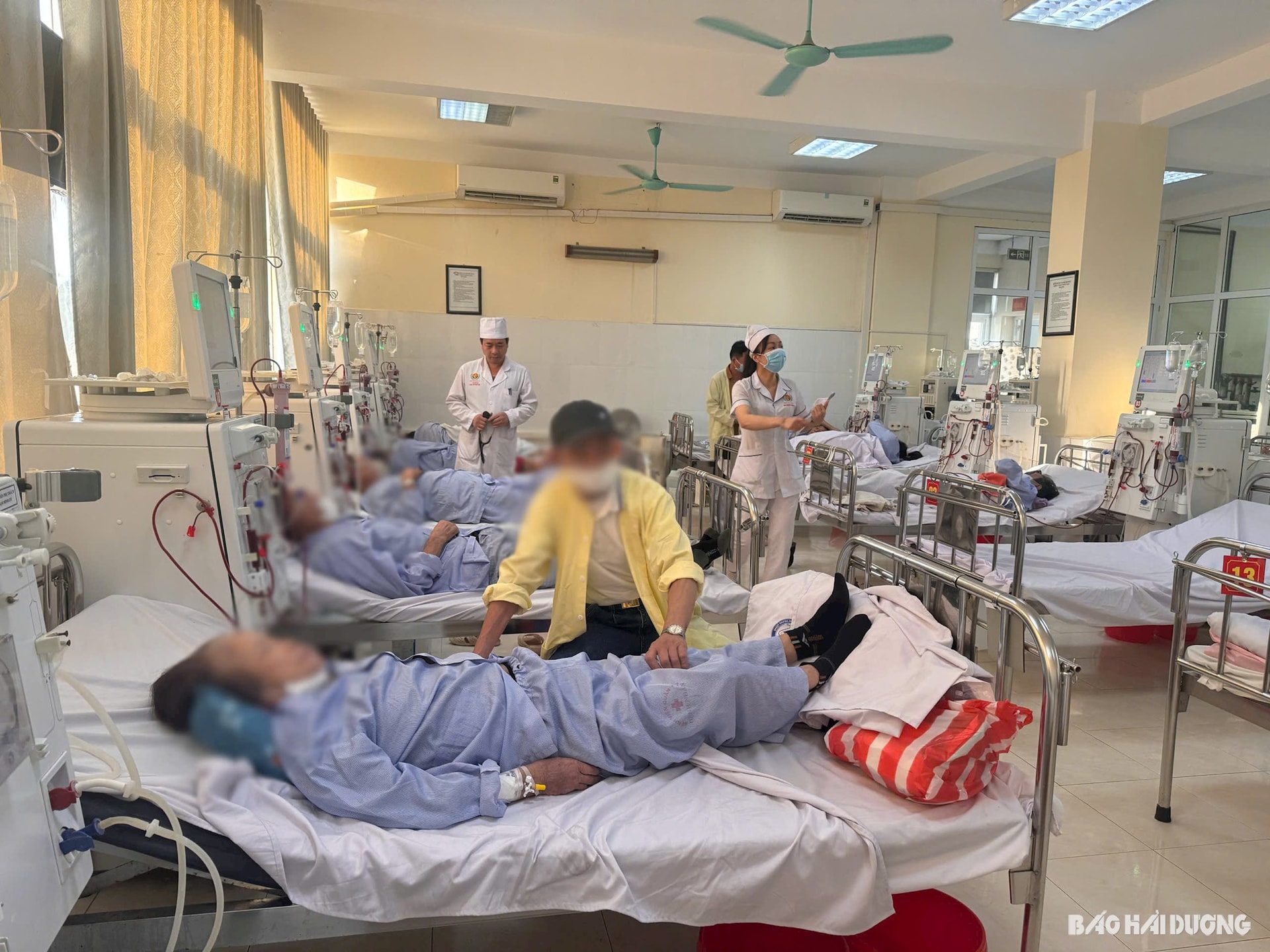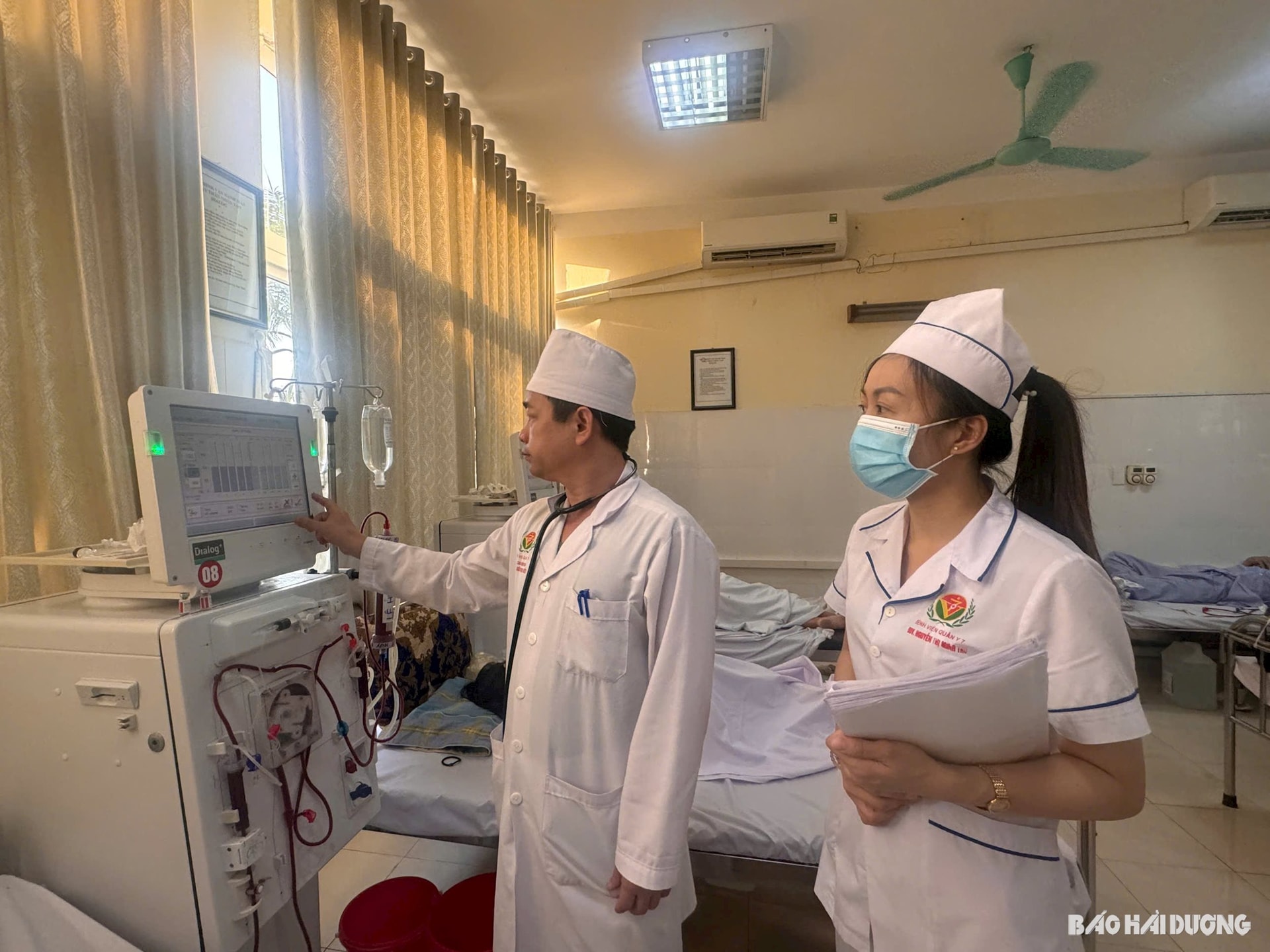The testing, diagnosis, and specific treatment regimen for people with kidney disease infected with Human Parvovirus B19 by the research team of Military Hospital 7 (Hai Duong) has opened up hope for this group of patients.

Human Parvovirus B19 (abbreviated as B19 virus) can be transmitted through the respiratory tract, blood, from mother to child, digestive tract... Infectious diseases are the second leading cause of death in people with end-stage chronic kidney disease, including B19 infection.
Vietnam currently does not have a complete diagnostic toolkit to evaluate methods for determining B19 in kidney disease. In Hai Duong, the technique for diagnosing B19 infection has not been implemented.
Some studies have shown that patients with kidney disease infected with B19 will cause acute glomerular injury due to damage to renal capillaries, increase the risk of kidney transplant rejection and 30% of patients infected with B19 will have anemia after kidney transplant. People with end-stage chronic kidney disease infected with B19 can die if not treated properly and promptly. "Therefore, we decided to carry out the Project on Application of ELISA and Realtime-PCR methods in diagnosing and detecting B19 and treating patients with kidney disease in Hai Duong to study and comprehensively evaluate the B19 virus in kidney patients in general and people with end-stage chronic kidney disease in particular. Thereby, providing a treatment regimen and prevention direction in management work at Military Hospital 7 as well as medical facilities in the province", said Dr. Pham Van Dung, Head of the Department of Internal Medicine - Blood Diseases (Military Hospital 7), project secretary.

To conduct this study, the research team selected 81 people with end-stage chronic kidney disease and 60 patients with kidney diseases such as acute glomerulonephritis, nephrotic syndrome, and non-end-stage renal failure.
The research team took blood and serum samples and used two testing methods: ELISA and Realtime PCR. With ELISA, the research team used a colorimetric system to detect the B19 antigen. The team used the Realtime method to amplify and use fluorescent dyes in the probe to detect the B19 virus.
After 2 years of implementing the project, the research team discovered 11 patients infected with B19, of which 7 patients were in the end-stage chronic kidney disease group and 4 patients had kidney-related diseases but were not in the end-stage.

After detecting the patient infected with B19, the research team gave the patient Glutathione 1.2 g/day for 2 weeks and combined treatment with Erythropoietin 2,000 IU injected subcutaneously 3 times/week for 1 month for the patient with anemia.
After treatment, the patient's hematological indicators improved significantly, the number of red blood cells increased from 3.4T/l to 3.89T/l; the hemoglobin increased from 93.3g/l to 120g/l. "Anemia causes dizziness, fatigue, loss of appetite and many other diseases. When red blood cells and hemoglobin increase, these limitations will be pushed back, the patient's health will improve significantly. When the disease is detected early, treatment is simpler and less expensive," shared Dr. Hua Trung Kien, Head of the Department of Nephrology - Dialysis (Military Hospital 7).
During the implementation process, besides the advantages, the research team also encountered certain difficulties. This is a new technique, not yet implemented by any unit, so the team had to consult with many experts in this field, many tests were performed many times to get results. Currently, the specific therapeutic immunoglobulin B19 is not yet circulated on the market...

Having suffered from kidney disease for a long time and having to undergo dialysis for a year, Ms. NTP in Nam Sach town said that in the past, despite being treated, she still felt tired and had no appetite. The reason was that her red blood cells and hemoglobin in her blood were still very low. When the doctor tested her and discovered that she was infected with the B19 virus and was treated with a new method, Ms. P.'s health improved significantly. "Now I am no longer dizzy or tired, and my spirit is quite comfortable," Ms. P. said.
According to Ms. Nguyen Thi Trung Chinh, Deputy Director of Hai Duong Department of Health, this is a highly practical and applicable study, with the ability to be widely applied in medical facilities from the district level up. The cost to implement the technique is not too high, and training, coaching, and transferring techniques to lower-level units is relatively easy.

With these practical meanings, people with kidney disease in general and end-stage chronic kidney disease in particular will reduce their worries, save costs in treatment, and help improve their quality of life. In the coming time, Military Hospital 7 will propose to replicate the results of this project at the hospital and many medical facilities in the province.
THANH HA